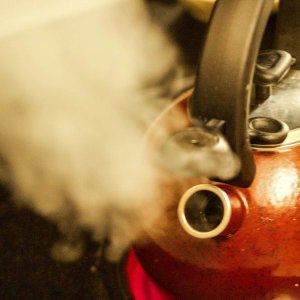Thousands warned to boil water immediately after a health-threatening discovery
By
Maan
- Replies 2
Water safety is something many take for granted—until an unexpected discovery sends shockwaves through a community.
What began as routine testing quickly turned into a serious public health concern, leaving thousands of residents on high alert.
The response was swift, but frustration is mounting as questions arise about how the situation was handled.
Up to 40,000 residents on NSW’s Central Coast were advised to boil their water before drinking after E. coli was detected in the local supply.
The bacteria was discovered during routine testing at the Terrigal Reservoir.
As a result, Central Coast Council issued an alert on 6 February for residents in Terrigal, Avoca Beach, North Avoca, Erina, Erina Heights, Copacabana, Kincumber, MacMasters Beach and Picketts Valley.
‘Water testing has revealed that the water supply to these areas has potentially been compromised,’ the council stated.
‘As a precaution, whilst further investigations are being undertaken, the Boil Water Alert has been issued.
‘Recent samples have detected the presence of E. coli bacteria, and further testing to validate the result is underway.’
E. coli is a bacteria commonly found in water contaminated with faeces or decaying organic matter, and ingestion can cause gastrointestinal issues such as diarrhoea and vomiting.
In some cases, exposure can lead to more severe illnesses, including pneumonia.
Central Coast Council chief executive David Farmer said supply from the reservoir had been cut off since 1:00 pm on 4 February, preventing further contamination from entering the network.
‘Generally, you find an animal has got itself into a reservoir and has then died, and that compromises the water health of that particular reservoir,’ he said.
‘You remove it, chlorinate and it’s okay.’
The council advised that water intended for drinking or food preparation should be boiled until it reaches a rolling boil, then allowed to cool before being stored in a clean, covered container in the fridge.
While unboiled water remained safe for washing, showering and bathing, residents were urged to avoid swallowing any.
‘Parents and carers could consider a sponge bath for children as an alternative,’ the council noted.
Immune-compromised individuals were encouraged to take extra precautions.
Frustrated residents criticised the council for relying on social media to announce the boil water alert, calling it a failure in communication.
‘I found out, purely by chance that I should not have consumed a mug full of tap water this morning and that I may have been exposed to E Coli through perhaps contaminated water supply?’ one person said.
‘Why is this only being shown on social media? This seems stupid and a bit of a joke. Why not via the news, radio and sms?’ another asked.
‘Where’s the updates Council? Why aren’t you providing text updates to all those in the affected areas?’ a third questioned.
In a previous story, we covered how ‘undrinkable’ tap water has left millions of Australians frustrated—raising concerns about water safety across the country.
Could this contamination be part of a bigger issue?
Read more to find out.

Should critical public health warnings rely on social media? Is it time for a more reliable system?
Let us know your thoughts in the comments.
What began as routine testing quickly turned into a serious public health concern, leaving thousands of residents on high alert.
The response was swift, but frustration is mounting as questions arise about how the situation was handled.
Up to 40,000 residents on NSW’s Central Coast were advised to boil their water before drinking after E. coli was detected in the local supply.
The bacteria was discovered during routine testing at the Terrigal Reservoir.
As a result, Central Coast Council issued an alert on 6 February for residents in Terrigal, Avoca Beach, North Avoca, Erina, Erina Heights, Copacabana, Kincumber, MacMasters Beach and Picketts Valley.
‘Water testing has revealed that the water supply to these areas has potentially been compromised,’ the council stated.
‘As a precaution, whilst further investigations are being undertaken, the Boil Water Alert has been issued.
‘Recent samples have detected the presence of E. coli bacteria, and further testing to validate the result is underway.’
E. coli is a bacteria commonly found in water contaminated with faeces or decaying organic matter, and ingestion can cause gastrointestinal issues such as diarrhoea and vomiting.
In some cases, exposure can lead to more severe illnesses, including pneumonia.
Central Coast Council chief executive David Farmer said supply from the reservoir had been cut off since 1:00 pm on 4 February, preventing further contamination from entering the network.
‘Generally, you find an animal has got itself into a reservoir and has then died, and that compromises the water health of that particular reservoir,’ he said.
‘You remove it, chlorinate and it’s okay.’
The council advised that water intended for drinking or food preparation should be boiled until it reaches a rolling boil, then allowed to cool before being stored in a clean, covered container in the fridge.
While unboiled water remained safe for washing, showering and bathing, residents were urged to avoid swallowing any.
‘Parents and carers could consider a sponge bath for children as an alternative,’ the council noted.
Immune-compromised individuals were encouraged to take extra precautions.
Frustrated residents criticised the council for relying on social media to announce the boil water alert, calling it a failure in communication.
‘I found out, purely by chance that I should not have consumed a mug full of tap water this morning and that I may have been exposed to E Coli through perhaps contaminated water supply?’ one person said.
‘Why is this only being shown on social media? This seems stupid and a bit of a joke. Why not via the news, radio and sms?’ another asked.
‘Where’s the updates Council? Why aren’t you providing text updates to all those in the affected areas?’ a third questioned.
In a previous story, we covered how ‘undrinkable’ tap water has left millions of Australians frustrated—raising concerns about water safety across the country.
Could this contamination be part of a bigger issue?
Read more to find out.
Key Takeaways
- Routine water testing at the Terrigal Reservoir detected E. coli, prompting Central Coast Council to issue a boil water alert for thousands of residents across multiple suburbs on 6 February.
- Council cut off supply from the reservoir on 4 February to prevent further contamination, with officials suggesting the source could be a deceased animal.
- Residents were advised to boil water for drinking and food preparation, while immune-compromised individuals were urged to take extra precautions.
- Frustration grew as residents criticised the council for announcing the alert solely on social media, demanding better communication methods.
Should critical public health warnings rely on social media? Is it time for a more reliable system?
Let us know your thoughts in the comments.
Last edited:








